Four purple-and-gold reads for the Fourth
Arts and Culture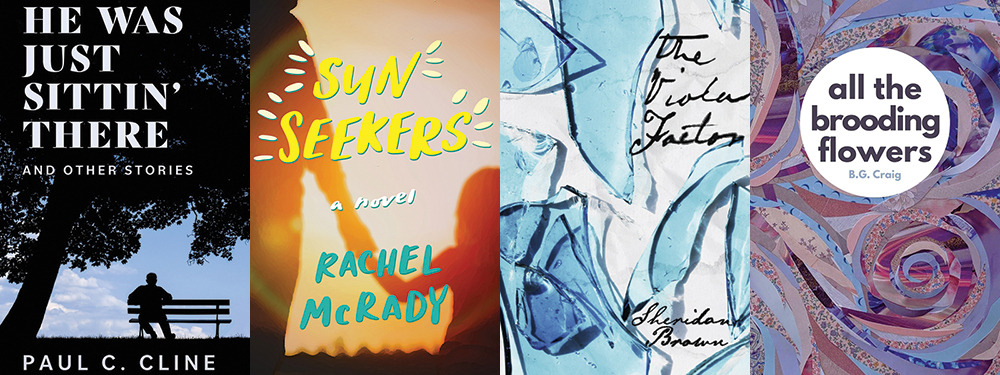
SUMMARY: The Fourth of July is just around the corner! Kick back on the beach or unwind in a hammock with a good book — especially one from a fellow Duke! Check out these four titles written by JMU alumni and faculty. From fiction to poetry, there’s something on this list for everyone’s vacation reads.
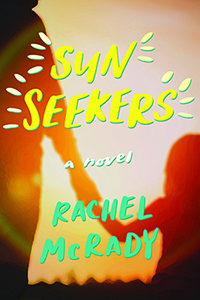 Sun Seekers: A Novel
Sun Seekers: A Novel
BY RACHEL McRADY (’11)
Alcove Press
From Emmy Award-winning writer Rachel McRady, a Media Arts and Design major, comes a vital, illuminating debut novel of a broken family uniting in the face of a terrifying crisis.
Six-year-old Gracie Lynn is perpetually curious and big-hearted. Convinced she knows how to save her beloved grandfather, John, from the “worm” that is eating his brain — a metaphor her mother once used to explain John’s dementia and sundown syndrome — she helps him break out of his nursing home, and the two disappear together on a quest to chase the sun. But what’s an adventure for Gracie is a nightmare scenario for her estranged parents, LeeAnn and Dan. There’s no way to predict where John might have taken their young daughter, or if he’s capable of keeping her safe.
Jaded beyond her years and struggling with her own mental health, LeeAnn has no delusions about what might happen if they don’t locate Gracie soon. Dan is no less frantic, but communicating with LeeAnn isn’t easy, even under the circumstances — too much stands between the hopeful young couple they once were and the people they’ve become.
Sun Seekers artfully explores the truths of parenthood, the ways in which we sometimes hurt those we love most and the universal experience of deep loss — even when the person is still here.
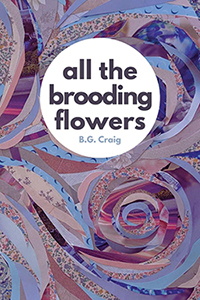 All the Brooding Flowers
All the Brooding Flowers
BY BRIANA “BRI” G. CRAIG (’18, ’20M)
Independently published
All the Brooding Flowers is an illustrated poetry collection by B.G. Craig that pairs insightful poetry with handmade paper collages for an experience that is emotionally striking and visually stunning. Each page is brimming with colorful, prose poetry that appreciates the nuances of being alive: examining grief in the wake of loss and reminiscing on the experiences of adolescence. This collection, in its authenticity and vulnerability, seeks to create a soft place to wade through the valleys of emotion, whether it is profound joy or unrelenting sadness.
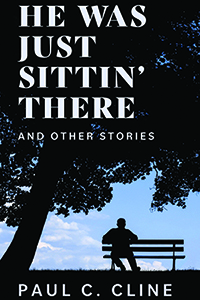 He Was Just Sittin’ There and Other Stories
He Was Just Sittin’ There and Other Stories
BY PAUL C. CLINE
Literary Spa
Paul Cline, professor emeritus of political science, has published He Was Just Sittin’ There, stories of “our town” and mountains, complete with humor, surprise, and bizarre to normal behavior.
While there are no quizzes, there are questions that will be answered in He Was Just Sittin’ There. What did the window-washer see? What would bring together an old man, a young girl and a goat at the county fair? How could an old Army sergeant have served with three generations of men in the same family? How did a secret passage lead to a house, where a blinking upstairs light beamed out at night? What was the story of the boy from the mountains who spoke an unknown language?
Do not be shocked at a little irreverence about the “authentic” history of various medical specialties, such as orthopedic surgery or the preacher who was seen visiting the racetrack. It is possible a “children’s story” may yield revelations for the adult reader. Tales of schoolteachers may bring a nostalgic response from one’s own experience. The mysterious use of a Carpathian Mountain cavern may stir a sense of justice achieved.
Cline recalls gathering on summer evenings with other kids in front of the neighborhood school to hear a high-school boy tell stories in which each of the youngsters played a role. All were rapt listeners of the secret passages, hidden rooms and creaking doors described by their older friend. Cline carries forward this experience to the present day. A former member of the Virginia House of Delegates, he resides with his wife, Diane, in Venice, Florida.
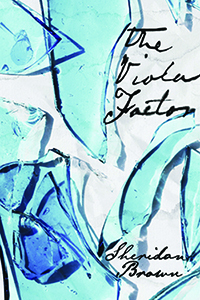 The Viola Factor
The Viola Factor
BY SHERIDAN BROWN (’74, ’78M)
BookBaby
The Viola Factor takes place at a time when the U.S. faced division, but also growth, after the Civil War. Viola Knapp Ruffner (1812-1903) struggled with what was just and fair, becoming a little-known confidant for a young, Black scholar from Virginia. But Viola was much more than a teacher; she was a mother, wife, gamechanger and friend. With her mother’s dying wish, she left her New England roots. This is a story of trauma and love in the South while battling for justice and the rightful education of the enslaved and once enslaved. African American leader Booker T. Washington (1856-1915) called her his friend and model for life.
The Viola Factor is in many ways a journey of life in baby steps, tentatively stumbling, until a galloping stride is achieved. Viola wears different shoes on different days: heavy, mud-trekking boots to allow for aggressive steps and daintier shoes for more rhythmic and assertive ones. She was a diligent daughter, an outspoken protector and a progressive teacher.
Like many women in her situation, Viola, alone at 17, must realize her own principles to fulfill her future goals. With every stride, she marches around surprises and over potholes, dodging folly after folly on her journey to fulfillment. After she ambles in one direction, plods along in another and wanders to find herself, a sudden halt pushes her forward until a factor of fate places her in the path of a newly freed slave with a desire to read and take charge. After years of post-traumatic stress and mental uncoupling, she finds herself a woman following her mother’s dying wish to fight for what is fair and just.

